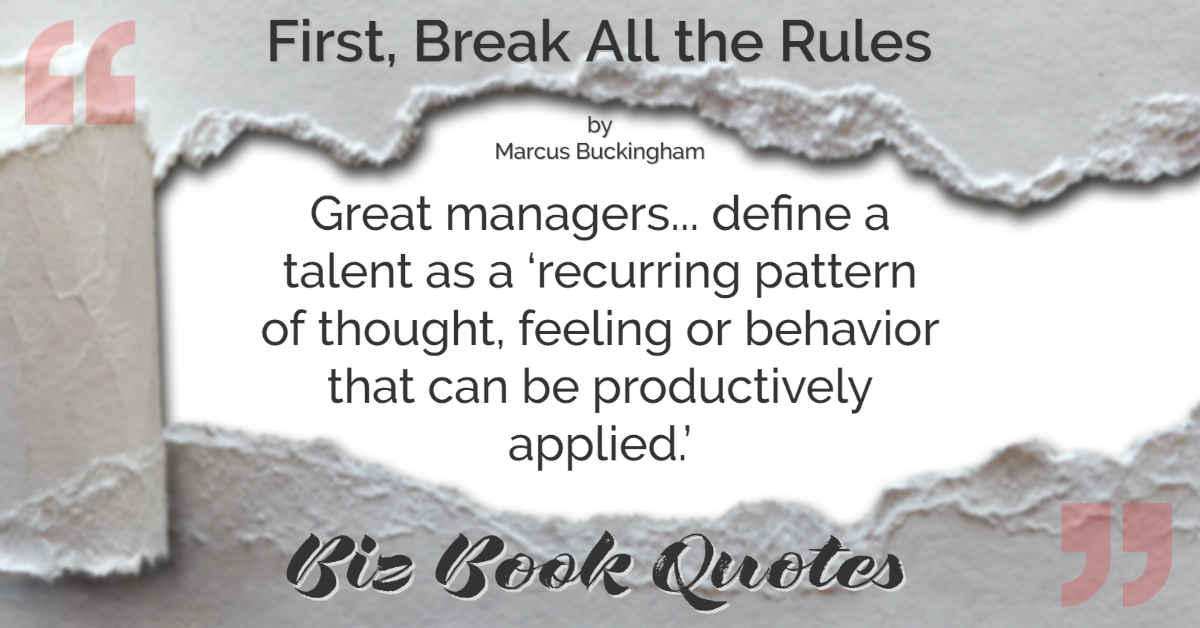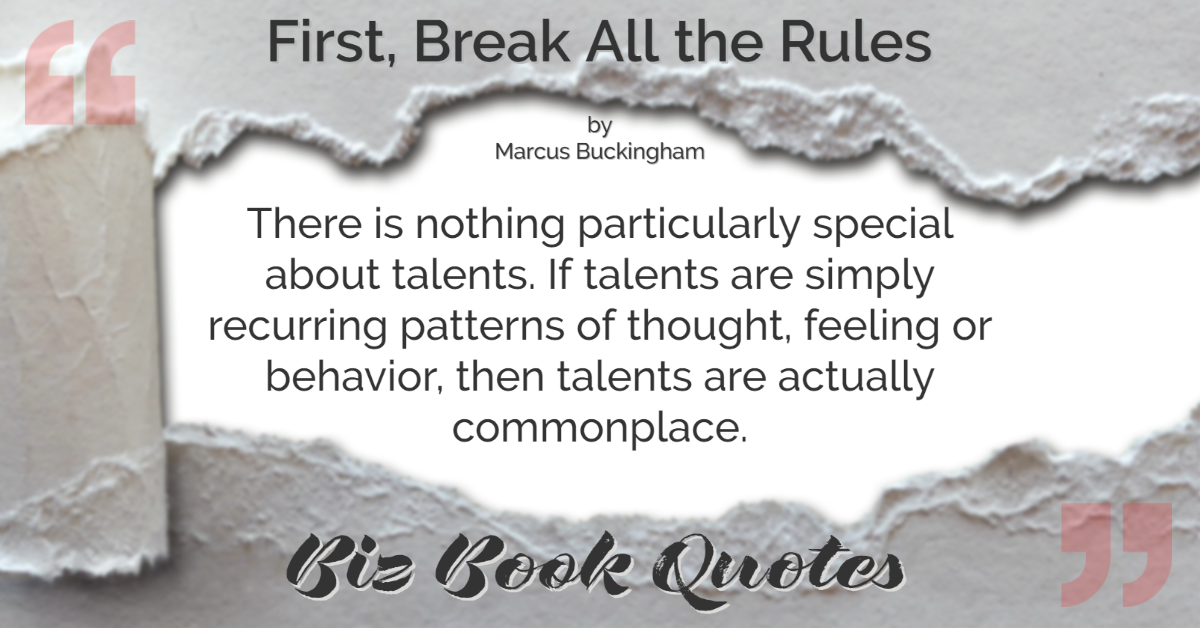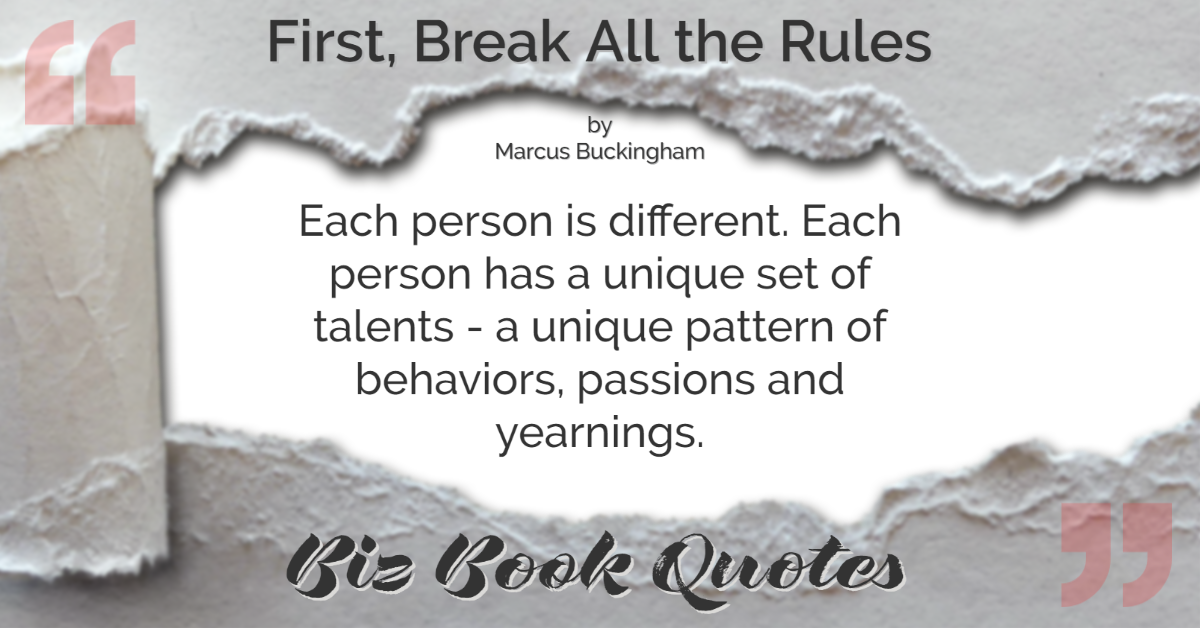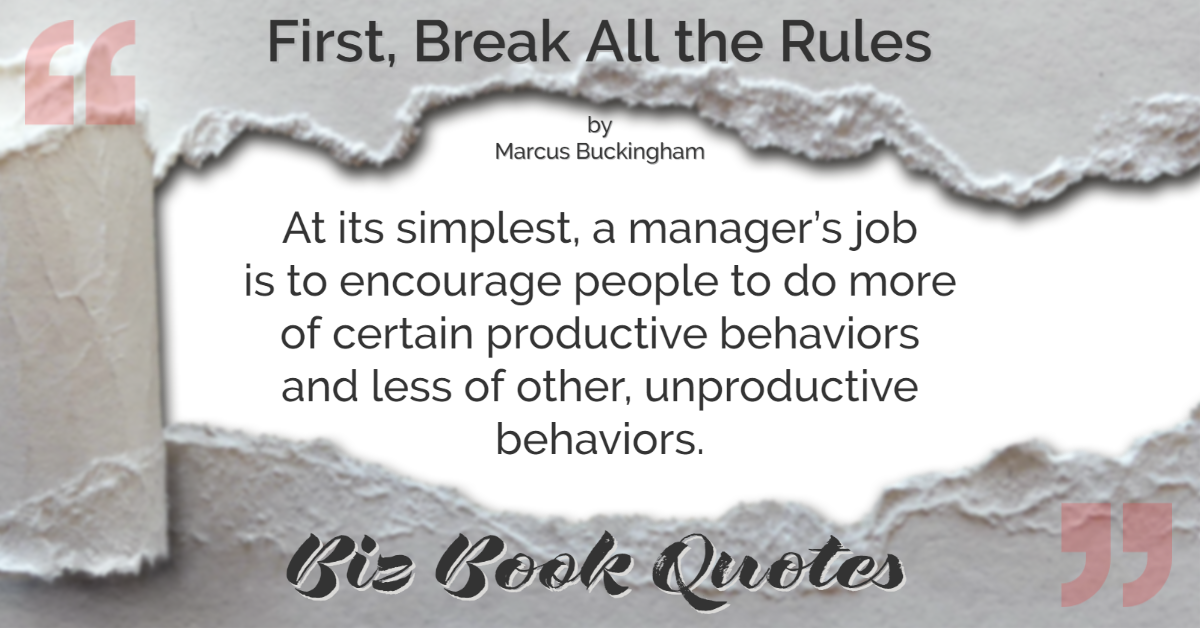 |
Communication is obviously central to behaving urgently every day.
|
184 |
 |
Make sure success does not undermine urgency and allow the powerful winds of tradition to pull new behaviors back to historical norms.
|
185 |
 |
Great managers… define a talent as a ‘recurring pattern of thought, feeling or behavior that can be productively applied.’
|
73 |
 |
Any recurring patterns of behavior that can be productively applied are talents. The key to excellent performance… is finding the match between your talents and your role.
|
73 |
 |
There is nothing particularly special about talents. If talents are simply recurring patterns of thought, feeling or behavior, then talents are actually commonplace.
|
99 |
 |
Each person is different. Each person has a unique set of talents – a unique pattern of behaviors, passions and yearnings.
|
153 |
 |
At its simplest, a manager’s job is to encourage people to do more of certain productive behaviors and less of other, unproductive behaviors.
|
170 |
 |
…the addition of bonuses and raises does not necessarily motivate a change in behavior, nor does it necessarily convince people that the downside of failure will go unpunished by the system.
|
111 |
 |
Never underestimate the power of clever people to help others see the possibilities, to help them generate a feeling of faith, and to change behavior.
|
112 |
 |
Culture is a complex concept… it means the norms of behavior and the shared values in a group of people.
|
165 |